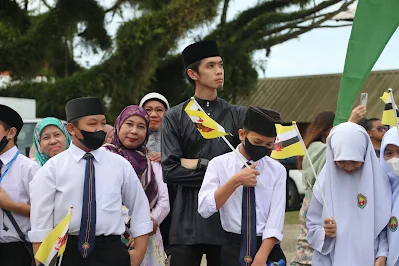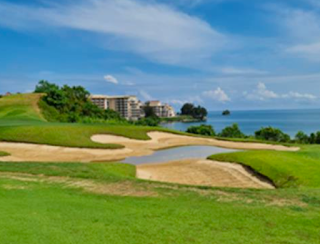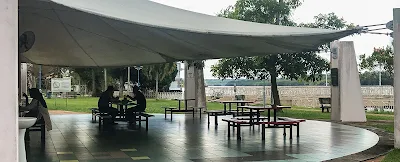In the cozy ambiance of our favorite café, the aroma of freshly brewed coffee filled the air as we gathered for our routine 'kopi talk' session. This time, our conversation revolved around the intriguing topics of halal and haram.
Haji Kasim, a retired oil company staff known for his insightful perspectives, kicked off the discussion by praising Singapore's approach to regulating these aspects. It was fascinating to learn that despite Islam not being the official religion there, Singapore had implemented strict laws in the food and beverage industry to ensure compliance with halal and haram requirements. He emphasized that violators faced severe penalties, including the dreaded blacklist.
Awang Ramlal, a retired public health officer with a wealth of knowledge, chimed in to shed light on Brunei's stance on halal and haram laws. He acknowledged that Brunei also held a stringent stance in this regard. However, he admitted that obtaining halal certification in Brunei could pose challenges and be less accommodating for businesses.
Captivated by this revelation, Haji Kamrol, a pensioner who always had captivating stories to share, recounted a tale about a café owner in Bandar, Brunei. According to him, this determined owner embarked on a demanding and time-consuming journey that spanned over a year to obtain halal certification. We were all taken aback when he mentioned that the authorities even requested information about the owner's social media accounts, although the reason behind this requirement in relation to halal and haram remained a mystery.
As we sipped our coffee, we found ourselves wholeheartedly supporting the importance of halal and haram laws. We recognized how these regulations played a vital role in ensuring the safety and hygiene of the food we consumed. They not only safeguarded our physical well-being but also contributed to our spiritual health. The existence of these laws provided us with the assurance that the food we enjoyed met the necessary standards, building trust and confidence in our choices.
However, amidst our appreciation for these laws, we couldn't ignore the significant challenges faced by businesses seeking halal certification. The cumbersome and unwelcoming certification process could potentially discourage entrepreneurs from pursuing it, jeopardizing their operations. Moreover, this complex process might deter potential investors from entering the halal industry in Brunei.
To address these concerns, we collectively suggested that the relevant authorities conduct a thorough review of the certification procedure. Simplifying the process and creating a more business-friendly environment would encourage entrepreneurs and investors to actively engage in the halal industry. Such improvements wouldn't only benefit businesses but also contribute to overall economic growth and development in the country.
In an attempt to shed some light on the certification process, I informed my friends that, on average, it takes around 45 calendar days to complete the halal certification process, provided all requirements are met and no issues arise during the inspection. Once approved, the premises are granted a Halal Certificate upon payment. I speculated that there might have been some complications with the applications our friends were referring to.
Expanding the conversation, I stressed the importance of educating our community, especially our non-Muslim friends, about the significance of halal. I drew parallels with individuals from different religious and cultural backgrounds who adhere to specific dietary practices. Just as Jews observe kosher laws and some Buddhists adopt vegetarian diets, Islam has its own dietary guidelines known as Halal. This presented us with an opportunity to enlighten our non-Muslim friends about the principles and significance behind Halal practices.
I continued by explaining that when a food establishment obtains Halal certification, it signifies that a certification body has conducted thorough audits and checks to ensure compliance with Halal standards.
In Brunei, the responsibility for regulating Halal Certification lies with the Halal Food Control Division (HFCD) under the Department of Shariah Affairs, Ministry of
Religious Affairs (MoRA). Over the past 12 years, a total of 376 local companies have been issued 2005 Halal certificates and 9240 Halal permits. Furthermore, the MUIB has granted 405 Halal permits to 29 international companies, showcasing the government's commitment to controlling and monitoring Halal-related matters in Brunei Darussalam, especially when they involve public interest.
Highlighting the gravity of the matter, I shared that His Majesty the Sultan has consistently emphasized the importance of prioritizing the Halal status of food and goods sold in the market. He urged the relevant government authorities to ensure their conformity with the commandments of Allah SWT in the Quran and Sunnah.
While some might view Halal certification primarily as a business matter, we emphasized that Shariah principles remain fundamental. Therefore, the implementation of Halal certification in Brunei should not solely rely on standardized documents but should prioritize the values of Shariah and Halal for all parties involved. This responsibility extends to the government agencies entrusted with protecting the welfare of the Muslim community in Brunei Darussalam.
However, we acknowledged that this responsibility shouldn't solely rest on the authorities. Business operators also need to recognize the importance of understanding the concepts of halal and haram throughout all stages of their product production. Similarly, Muslim consumers should take responsibility for what they consume and use, being aware of the positive or negative impact it may have on their morals, health, and faith. Ultimately, the collective concern of all parties involved in this matter will safeguard the Muslim Ummah from consuming non-halal or doubtful products.
As we finished our coffee and concluded our 'kopi talk' session, we felt empowered by the shared understanding and the awareness of the significance of halal. We hoped that our conversation would contribute to a greater appreciation and respect for these concepts among our community, fostering a harmonious coexistence.
Note: The names used in this story have been fictionalized to ensure the confidentiality of my companions.
 The royal convoy gracefully made its way to the Padang, where the Sultan and his family warmly engaged with the people, who were eager to express their unwavering loyalty and deep affection for their monarch.
The royal convoy gracefully made its way to the Padang, where the Sultan and his family warmly engaged with the people, who were eager to express their unwavering loyalty and deep affection for their monarch. 









.jpeg)






.png)



